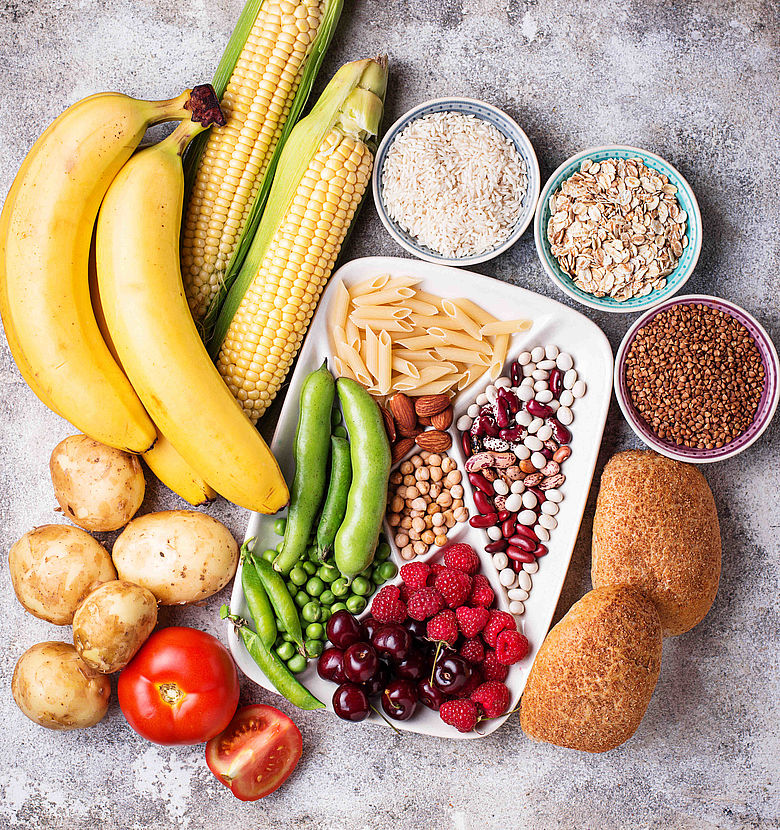Why do many people exercise regularly, appear to eat healthily, but still rarely achieve their desired body composition goals?
It is often believed that you can exercise off a bad diet. But the truth is you can’t. Whether the goal is fat loss, muscle gain, fitness or improving overall health, exercise only makes 30% of the equation. Healthy eating habits make up 70% of the result!
Here are some of the problems as we see it:
- Eating too many wrong carbohydrates,
- Eating too many carbohydrates at the wrong time,
- Not eating enough protein,
- Not eating enough good fats, and
- Drinking too much alcohol.
In this 3-Part Series we will share with you the importance of the three essential macronutrients: Carbohydrates, Proteins and Fats.
Let’s start with Carbohydrates. What are carbohydrates?
Without getting too technical, your body breakdowns carbohydrates into glucose (blood sugar), which is the main source of energy for body’s cells, tissues, and organs.
One of two things can occur once carbs are consumed: They get utilised as energy or stored in the muscle & liver for later use. What often happens, however, is more carbs get consumed before being utilised as energy, and as a result excess carbs gets stored as fat.
This is not to say that carbs are the “bad guy”. We need carbs for our body’s functionality, and offers the following benefits:
- Essential for energy,
- Building lean tissue,
- Maintaining normal bodily functions, and
- Essential for fibre and optimal gut health.
We just need to be eating the right types of carbs and at the right times.
Poor choices include pastries, cakes, chocolates, chips, biscuits. These are high in carbs, high in fat and offer little to no vitamins and minerals. You can still enjoy these on the rare occasion, just not as a daily staple, perhaps once a-week, especially if you’re trying to get rid of some of that unwanted belly fat.
Moderate choices include bread, rice, pasta, potatoes. These are high in carbs, lower in fats and are not to be completely avoided but consumed in moderation. Can be consumed daily, but not required as part of every meal.
Best choices come from your fruit and vegetables as they are packed with vitamin and minerals! These can be consumed all day every day. Just be mindful that some fruits are higher in carbs, such as Bananas (26g of carbs per medium size), apples (25g of carbs per medium size), mangos (24g of carbs per cup chopped)
Here are some tips on timing:
It’s best to consume most of your carbs in the earlier half of your day and taper off as the day progresses. This is to ensure that you can utilise the energy from carbs as you need it, then reduce consumption as your body requires less energy towards the end of your day. No need to go to bed on fully belly of pasta!
When it comes to exercising for fat loss, we recommend that you do not consume carbs for 2-3 hours before exercise so that your body utilises stored energy as its first point of call rather than food you just consumed. We also recommend not eating for an hour afterwards, as your body will continue to burn stored energy. Bear in mind this is the recommendation for fat loss goals. When it comes to performance-based goals (such as training for a marathon), it’s ok to eat before training as you may require that extra energy to help you improve performance.
When it comes to weight training timing is not so important, in fact, eating a light snack (such as a banana) may be beneficial, as you may need that extra energy for progressive overload. You want to be increasing weights training load week on week. It’s important however that you do eat shortly after to help maintain muscle, especially consuming protein. We will speak more on protein in the next part of this series.

